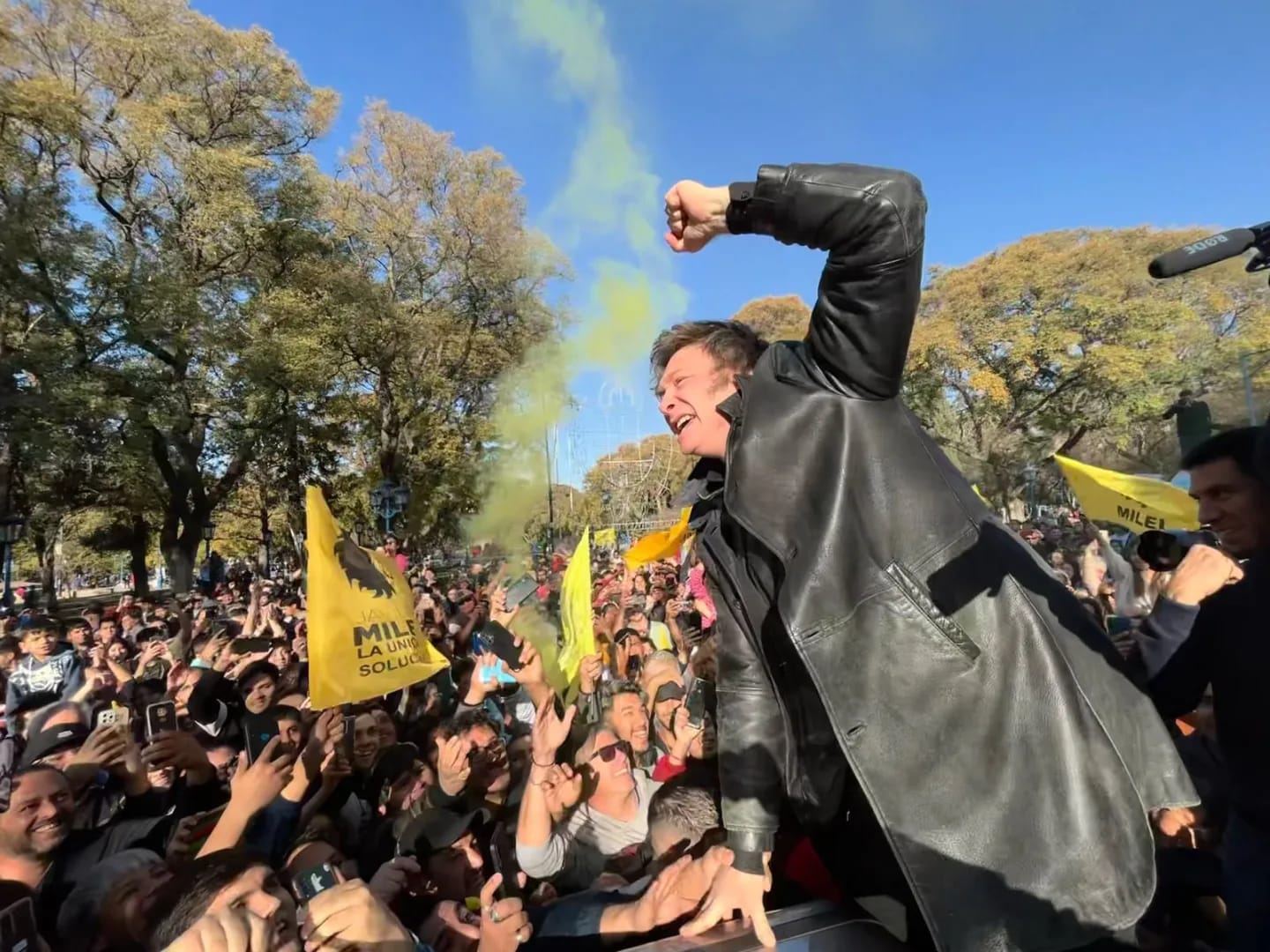Is tornado Milei (already) hitting the Argentine economy?

The triumph of the turbo-liberal Javier Milei in the primary elections in Argentina has caused an earthquake in the stock market of the country, which is experiencing the worst economic crisis since the financial collapse of 2001. Here's what's happening and what economists predict. All the details
The Milei-effect is already being felt. Following the victory of populist leader Javier Milei in the primaries in Argentina, the country's economy, which is already in a dramatic situation, has been further tested.
The Argentine stock market crashed and prices rose further, as in the case of beef, which is a staple of the local diet. The economic shock therefore led the government to announce some measures to protect the national currency, including the suspension of beef exports, which was later canceled within hours of the news.
MILEI EFFECT
The Argentine economy, which this year has recorded an annual inflation rate of more than 100% and already marked by the defaults of 2014 and 2020, is facing a situation that requires emergency political decisions. And the triumph of the turbo-liberal Milei in the primary elections – which were held last weekend and measure the temperature in view of the presidential elections on October 22nd – has added more fuel to the fire.
Milei's promise to abolish the Argentine central bank and his intention to replace the peso with the US dollar led to the collapse of the country's stock market in the hours following the election results.
THE GOVERNMENT'S RESPONSE
In response to the market quake, Quartz observes, “the government devalued the peso by about 18%, while interest rates were raised by 21 percentage points, reaching a benchmark rate of 118%. The Central Bank also announced its intention to freeze the official exchange rate at 350 pesos to 1 US dollar until the October 22 elections.
Last Monday's weakening of the peso is likely to drive inflation higher, according to economists quoted by the Wall Street Journal .
WHY ARGENTINA WANTED TO SUSPEND BEEF EXPORTS
“This – explains Bloomberg – caused a 20% increase in prices during the night [of Milei's victory, ed ], even in the local livestock market, where a kilo of meat went from 664 pesos last week to 783 Tuesday. Now the government is trying to prevent the devaluation from rapidly affecting all local food and fuel prices."
BACKFRONT AND SKEPTICISM
Hence the announcement by the country's customs office to implement a temporary ban on beef exports to protect the Argentine peso. But only a few hours later the measure was denied by the Secretary of Agriculture, Juan Jose Bahillo, who, together with the head of the customs agency, Guillermo Michel, instead declared that a negotiation was underway with beef producers to find an agreement on volumes and prices for the domestic market that would have allowed them to continue exporting.
However, according to Bloomberg , the industry has shown skepticism that an agreement could cool prices in the short term also because, as the head of the Argentine beef industrial group Ciccra said: "This will not control the 'rising meat prices for all consumers. Agreements with the export sector account for only 6-7% of all meat consumed in Argentina."
And seven cuts highly valued by the population can no longer be exported for some time.
Furthermore, in Argentina, as the economic masthead points out, policies that affect meat prices immediately touch a social nerve because it represents a fundamental part of the local diet. In fact, the population competes with its Uruguayan neighbors for the primacy of the world's largest consumers of red meat.
THE COMMENT OF THE ANALYST
The primaries take a picture of the sentiment of Argentine voters who, as Jared Lou, a portfolio manager at William Blair Investment Management in Chicago, told the Wall Street Journal , "given the bad state of the economy, they seem to be calling for change."
"The low turnout at the polls and the surprising results – he added – have contributed to increasing political and market uncertainty".
In fact, “US investors – writes the WSJ – abandoned the Argentine stock market, causing the Global X MSCI Argentina ETF to plunge as much as 6% in early trading on Monday, setting the stage for its worst day in more than a year. As of midday in New York, the fund was down 2.4%.”
This is a machine translation from Italian language of a post published on Start Magazine at the URL https://www.startmag.it/economia/il-tornado-milei-si-abbatte-gia-economia-argentina/ on Wed, 16 Aug 2023 09:47:21 +0000.
